Publications
Articles, publications, books, tools and multimedia features from the U.S. Institute of Peace provide the latest news, analysis, research findings, practitioner guides and reports, all related to the conflict zones and issues that are at the center of the Institute’s work to prevent and reduce violent conflict.
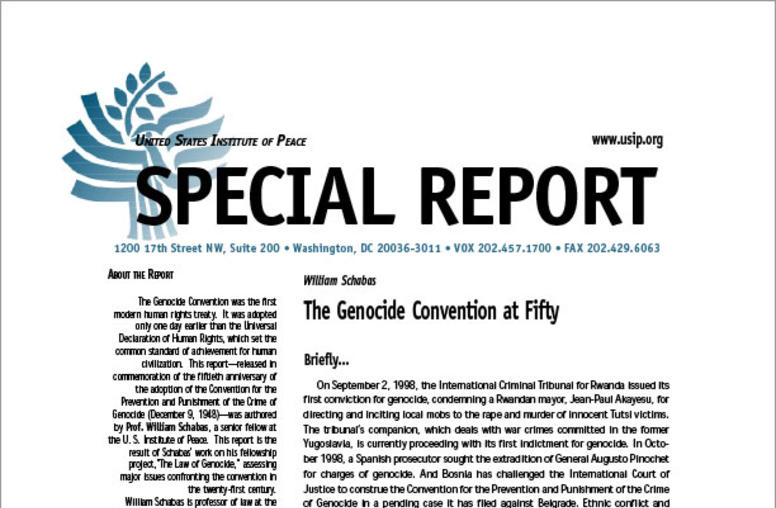
The Genocide Convention at Fifty
Summary On September 2, 1998, the International Criminal Tribunal for Rwanda issued its first conviction for genocide, condemning a Rwandan mayor, Jean-Paul Akayesu, for directing and inciting local mobs to the rape and murder of innocent Tutsi victims. The tribunal's companion, which deals with war crimes committed in the former Yugoslavia, is currently proceeding with its first indictment for genocide. In October 1998, a Spanish prosecutor sought the extradition of General Augusto Pinoch...
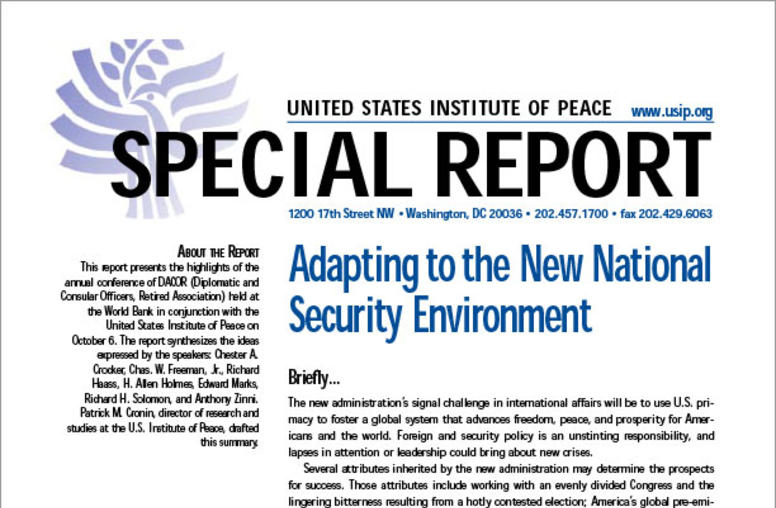
Adapting to the New National Security Environment
Summary The new administration's signal challenge in international affairs will be to use U.S. primacy to foster a global system that advances freedom, peace, and prosperity for Americans and the world. Foreign and security policy is an unstinting responsibility, and lapses in attention or leadership could bring about new crises. Several attributes inherited by the new administration may determine the prospects for success. Those attributes include working with an evenly divided Congres...
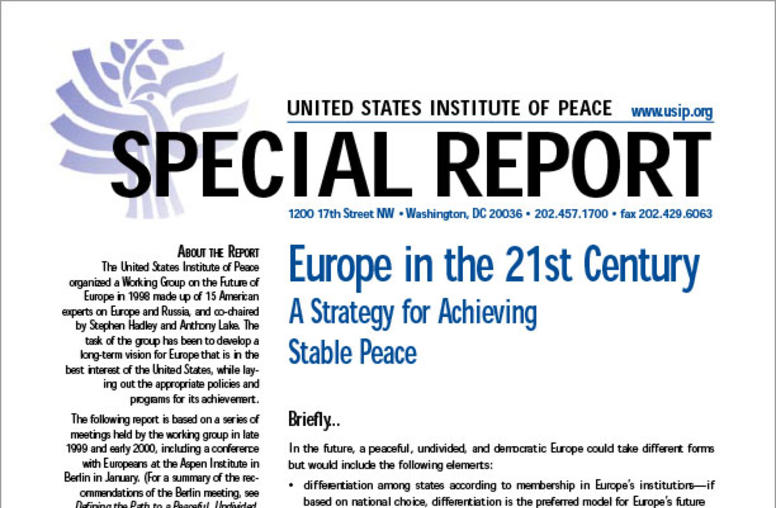
Europe in the 21st Century: A Strategy for Achieving Stable Peace
Summary In the future, a peaceful, undivided, and democratic Europe could take different forms but would include the following elements: differentiation among states according to membership in Europe's institutions--if based on national choice, differentiation is the preferred model for Europe's future a stable peace among European states the integration of Russia into Europe a more equal relationship between the European Union and the United States in European affairs and gl...
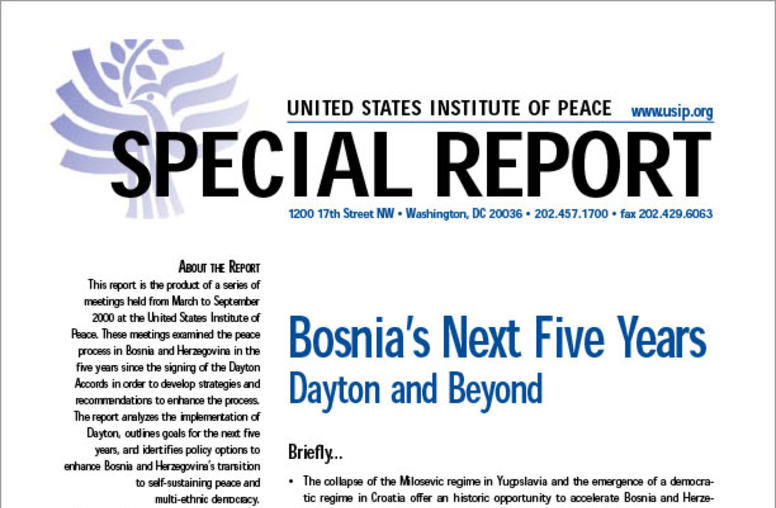
Bosnia's Next Five Years: Dayton and Beyond
The Dayton Upgrade Project at the United States Institute of Peace held a series of meetings to examine the peace process in Bosnia in the five years since the signing of the Dayton Accords. Subjects addressed included post-war security structures in Bosnia, institution building, economic restructuring, ethnicity, and nationalism.
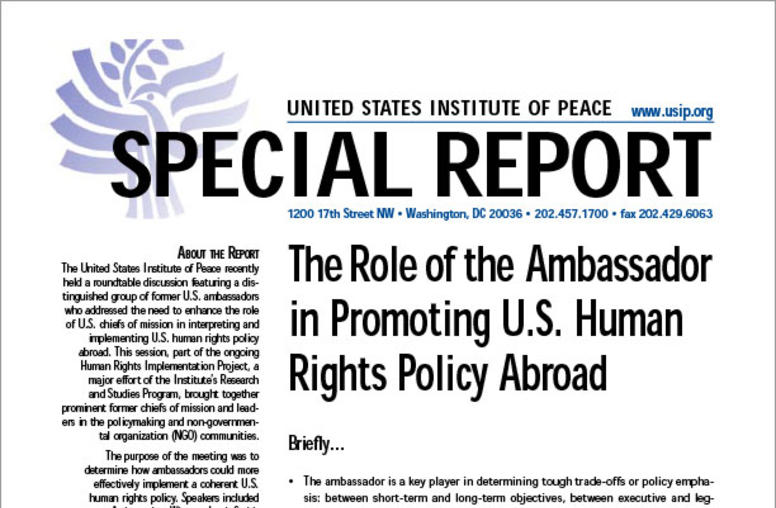
The Role of the Ambassador in Promoting U.S. Human Rights Policy Abroad
Summary The ambassador is a key player in determining tough trade-offs or policy emphasis: between short-term and long-term objectives, between executive and legislative priorities, between strategic interests and specific human rights concerns, between public and private diplomacy, between coercive and cooperative approaches, and between unilateral and multilateral approaches to specific problems.
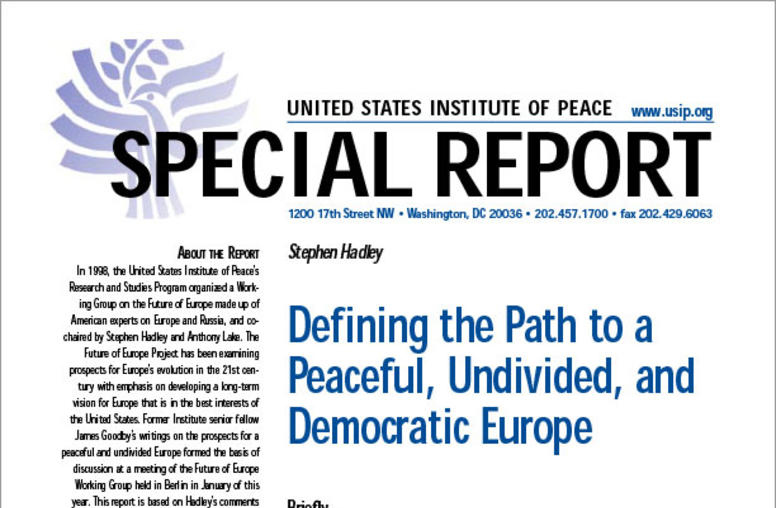
Defining the Path to a Peaceful, Undivided, and Democratic Europe
Summary A peaceful and undivided Europe must include both the United States and Russia if it is to be stable and successful over time. The United States wants a Europe that is a reliable strategic partner in trade and security issues, both in the region and potentially elsewhere. There can be considerable flexibility of form in the way this "single security community" of Europe arranges itself.
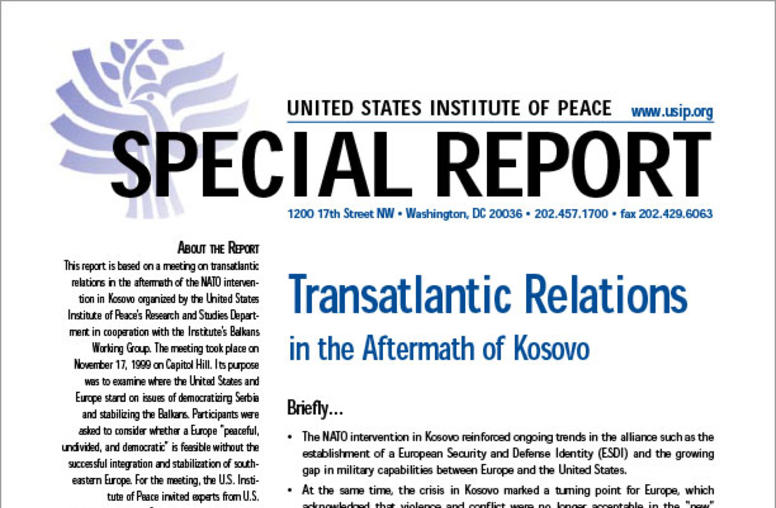
Transatlantic Relations In the Aftermath of Kosovo
Summary The NATO intervention in Kosovo reinforced ongoing trends in the alliance such as the establishment of a European Security and Defense Identity (ESDI) and the growing gap in military capabilities between Europe and the United States. At the same time, the crisis in Kosovo marked a turning point for Europe, which acknowledged that violence and conflict were no longer acceptable in the "new" Europe--even on its periphery.
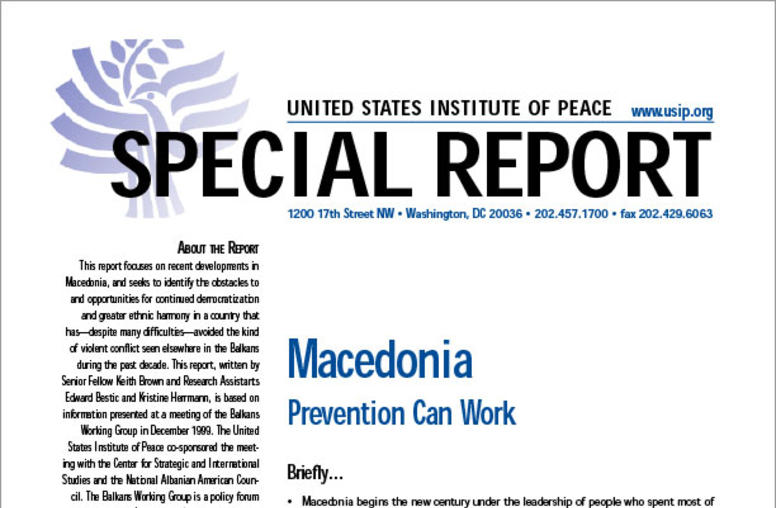
Macedonia: Prevention Can Work
This report focuses on recent developments in Macedonia, and seeks to identify the obstacles to and opportunities for continued democratization and greater ethnic harmony in a country that has--despite many difficulties--avoided the kind of violent conflict seen elsewhere in the Balkans during the past decade.
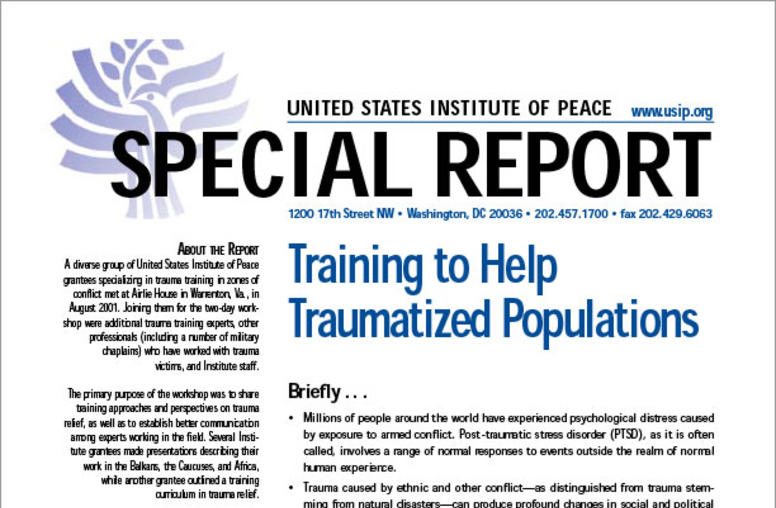
Training to Help Traumatized Populations
Summary Millions of people around the world have experienced psychological distress caused by exposure to armed conflict. Post-traumatic stress disorder (PTSD), as it is often called, involves a range of normal responses to events outside the realm of normal human experience.
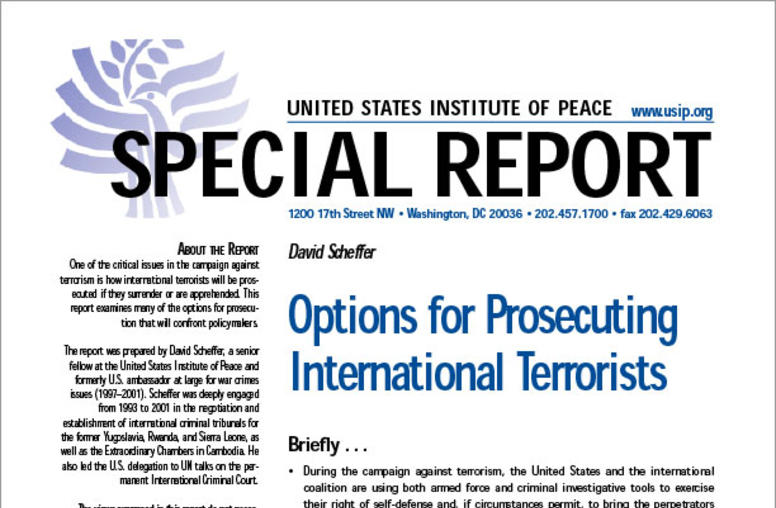
Options for Prosecuting International Terrorists
Summary During the campaign against terrorism, the United States and the international coalition are using both armed force and criminal investigative tools to exercise their right of self-defense and, if circumstances permit, to bring the perpetrators to justice. The latter goal has been instrumental in building the international coalition against terrorism. Grounds for criminal prosecution of the al Qaeda terrorist suspects include outstanding U.S. indictments, UN Security Council...